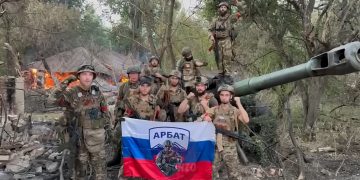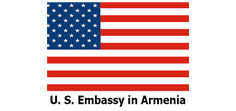In recent days, Russian President Vladimir Putin has issued two key statements regarding Ukraine in which he tried to justify his country’s actions in Ukraine through historical comparisons.
There are a number of propaganda and manipulative instances in those statements, from which we have singled out Putin’s double interpretation of the right to self-determination of nations, which is essential for the Armenians and Armenia.
Self-determination of nations – “bacillus of nationalism”
In his first speech on February 21 announcing the recognition of Donetsk and Lugansk as the “People’s Republics,” Putin particularly said that Ukraine was “entirely created” by Russia, more specifically by the Bolshevik authorities.
In a historical reflection, Putin describes the debate over the modes and methods of governing the territories remaining in the territories of the Russian Empire after the October 1917 coup. He recalls that Joseph Stalin, who in 1922 held the posts of First Secretary of the Central Committee of the Communist Party of the Soviet Union and the Minister of National Committee, proposed the creation of a union of autonomous republics within Russia, while, according to Putin, Vladimir Lenin offered “ to yield to the nationalists, as he (Lenin) called the independents at the time, to follow the path of a confederate union, based on the right to self-determination of nations, up until complete secession.”
“Why was it necessary to make a royal gift, to satisfy any, infinitely growing nationalist aspirations in the outskirts of the former empire?”- asks the current president of Russia, considering the peoples of the Soviet republics in fact “the population of historical Russia,” and their independent aspirations – “bacillus of nationalism,” which, according to Putin, eventually helped to dismantle the USSR.
Moreover, Putin does not consider the impetus for the national-democratic movements in the Soviet Union since the second half of the 1980s to be the unfulfilled expectations and aspirations of the peoples of the USSR, but calls them expression of “growing appetite of the local elites.”
The self-determination of nations is a “guarantee of freedom”
And in the statement of February 24, in which Putin declared a de facto war with Ukraine for the purpose of “denationalization” and “demilitarization” of the country, in contrast, the right of nations to self-determination is mentioned in a positive, “liberating” and “humanitarian” context. He notes that the realities created after World War II are very important, but “no one has cancelled the principle of self-determination of nations, which is enshrined in Article 1 of the UN Charter.”
Subsequently, Vladimir Putin speaks, among other things, of respecting the sovereignty of the countries independent from the USSR, yet, in fact, he states in direct text that all the peoples living in present-day Ukraine have the right to self-determination.
“Neither during the formation of the USSR, nor after the Second World War, did anyone ever ask the people living in modern Ukraine how they want to organize their lives. At the core of our policy is freedom, the freedom of everyone to independently decide the future for themselves and their children. And we think that it is essential that all the peoples living in present-day Ukraine can use that right of choice if they desire,” the Russian president said in his speech.
Thus, during his two key speeches within a week, Russian President Vladimir Putin manipulates the content of the popular principle of self-determination of nations, presenting it as a tribute to nationalism, and on the other hand, accepting the potential of self-determination of different groups living in Ukraine.
Hakob Karapetyan

 FACTOMETER
FACTOMETER











